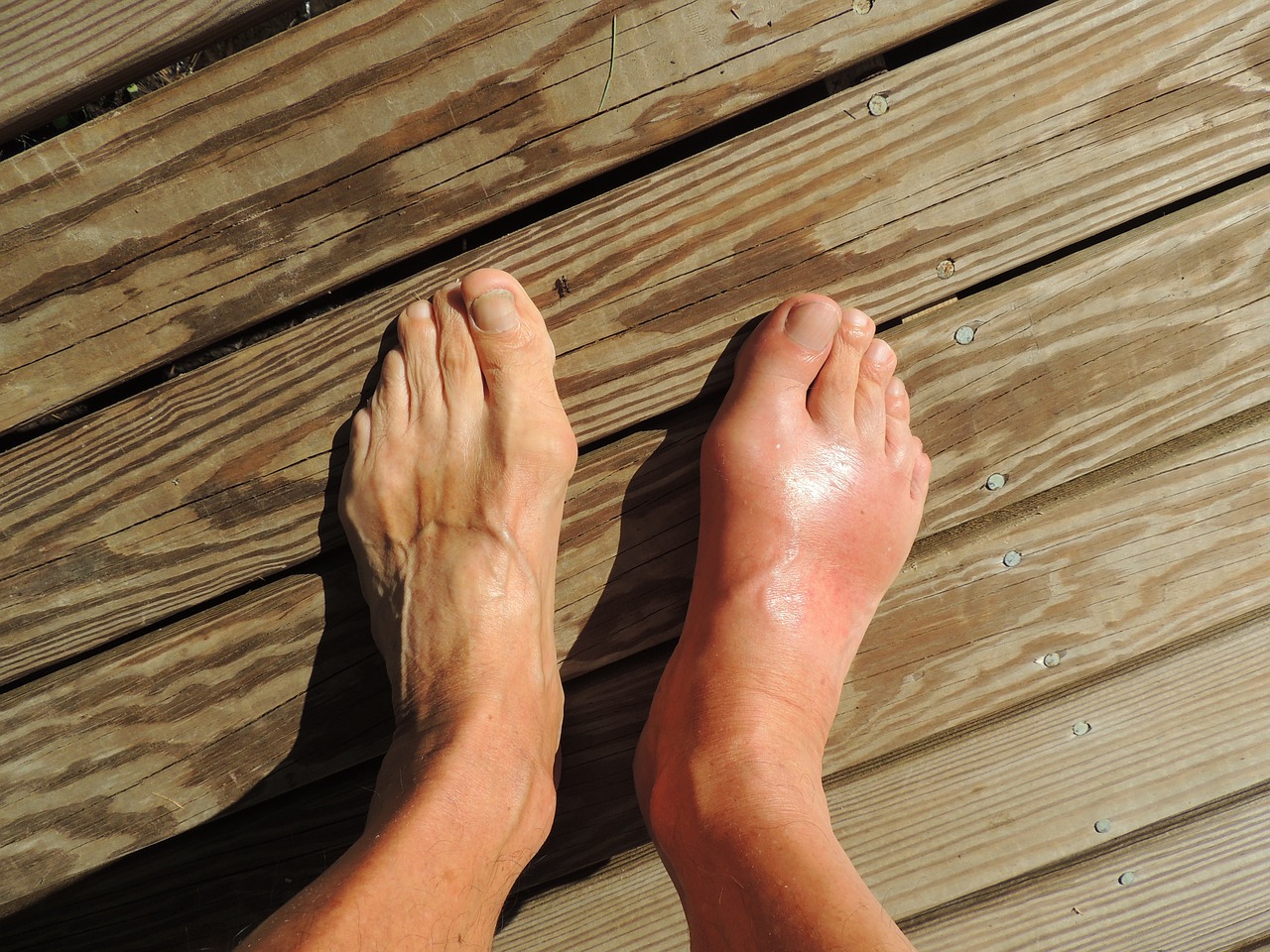
What is gout?
Gout is redness and swelling (or inflammation) within a joint caused by the excess of uric acid. You may often hear people refer to gout as a type of arthritis.
When there is excessive uric acid circulating in the blood stream it can become deposited in skin and joints as crystals. These crystals act similar to sand paper causing the surface of joints to appear rough rather than smooth. This roughness leads to grating in the joint that causes inflammation.
Gout is often thought of as an old fashioned disease affecting the rich who drink a lot of port. In fact, it’s pretty common affecting roughly 1 in 40 people in the UK. It is more common in men and in the elderly.
What does it feel like?
High levels of uric acid can cause inflammation of a joint or the development of a gouty tophus (swelling under the skin.)
- Very painful joint (too painful to touch, stand on or use)
- Redness of the affected joint
- Swelling of the affected joint
How did I get it?
Uric acid (or urate) is a chemical which comes from the food and drink we take as well as from cells in our body that die and regenerate over time.
Uric acid is transported around our body by blood and disposed of in our urine.
Consequently, gout can be a consequence of excess uric acid in our diet.
It is made worse when we are dehydrated. Some tablets can also worsen dehydration, and hence worsen gout.
Rarely, gout can be caused by a genetic defect leading to an inability deal with uric acid in the body.
How long will it last?
A recent flare of gout will often settle within 3 days if you stay well hydrated and take an anti inflammatory tablet such as ibuprofen.
For those people who cannot tolerate ibuprofen, colchicine is a useful alternative. However, this is a prescription only medicine.
Blood rich in uric acid will remain as such unless your diet is addressed to reduce intake of uric acid.
Tablets are also available to reduce your uric acid level but these need to be taken long term and require blood tests to help us monitor their effectiveness.
How can I help?
- Stay well hydrated by drinking lots of water.
- Avoid tea, coffee and alcohol as these tend to worsen dehydration.
- Stay cool in hot weather.
- Avoid tablets that worsen dehydration. Common examples include furosemide, bendroflumethiazide and indapamide.
- Avoid food and drink rich in Purines
- Alcohol
- Marmite, Bovril, gravy
- Seafood and shellfish –
- Anchovies
- Sardines
- Herring
- Mussels
- codfish
- Scallops
- Trout
- Haddock
- Crab
- Lobster
- Oysters
- Shrimp
- Meats –
- Bacon
- Turkey
- Veal
- Venison
- Liver
- Beef
- Chicken
- Duck
- Pork
- Ham
- Mushrooms
- Quorn
- Asparagus, cauliflower, spinach
- Bran, oatbran, wholemeal bread
- Baked beans, soya beans, kidney beans, peas
If you get a flare of gout, rest the joint and keep it elevated. An ice pack might help. Start taking anti inflammatory tablets such as ibuprofen or colchicine early.
If you get a flare of gout, contact us for a blood test to see if you might benefit from help in reducing your uric acid levels.
Is this dangerous?
On the whole, no.
However, the pain can be quite intrusive in life
It is worth noting that in rare cases where the uric acid is very high for a ,long time uric acid can can cause destruction to joints and other organs.
